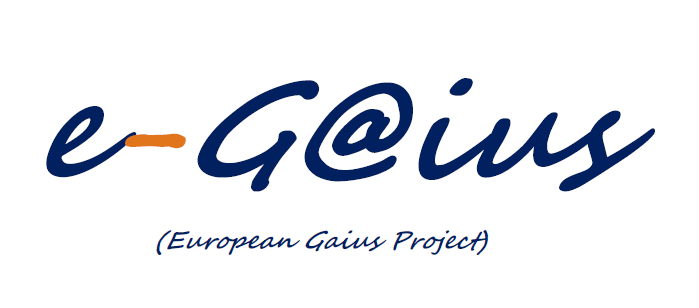
The School for the Judiciary celebrates 10 years of the European Gaius project for the strengthening of the European legal culture of Italian magistrates, which draws its inspiration from the Eurinfra program launched in the Netherlands in 2000, approved by a resolution of the High Council for the Judiciary on 13 April 2011.
The first action of the project concerned the increase of courses dedicated to European law in central and decentralized training, with particular regard to linguistic profiles, as well as the provision, where possible, of specific sessions on European law within the courses concerning topics of national right.
The second action concerned the establishment, in the offices of the contact persons for decentralized training, alongside the magistrates with specific competences in criminal and civil sectors, of the figure of the magistrate with competence in the sector of European law.
The third action concerned the establishment, within the cosmag website, of a web page which would have allowed a rapid and complete access to the carried out and in progress training actions, to the teaching materials, to all the European sources and to the national and supranational jurisprudence.
The project has been supervised by the School for the Judiciary since 2012.
The network of European trainers has been operating for ten years in the districts of the Court of Appeal and at the Court of Cassation. European law is an integral part of the training courses for judges. The School Newsletter, launched in 2021, intends to implement that part of the project aimed to quick and complete access to legal documentation.
The project was ranked among the best training practices under the pilot project on European judicial training, proposed by the European Parliament in 2012 and carried out by the European Commission in 2013-2014, with which the EJTN conducted an in-depth study to identify and document good judicial training practices across Europe.
Similar networks exist in other countries such as the Netherlands, Spain, Romania, Bulgaria, Hungary and Poland.
The European Parliament and the Commission have repeatedly expressed their support for these projects.
The School took stock of the European Gaius project and the experience of the coordinators of the European courts in a Webinar on 11 June 2021.
Legislation references
April 2014
European E-Justice – Good training practices
February 2013
European Parliament resolution on judicial training – legal coordinators (2012/2864(RSP))
March 2012
European Parliament resolution on judicial training (2012/2575(RSP))
April 2011
High Council for the judiciary: resolution
Third action
